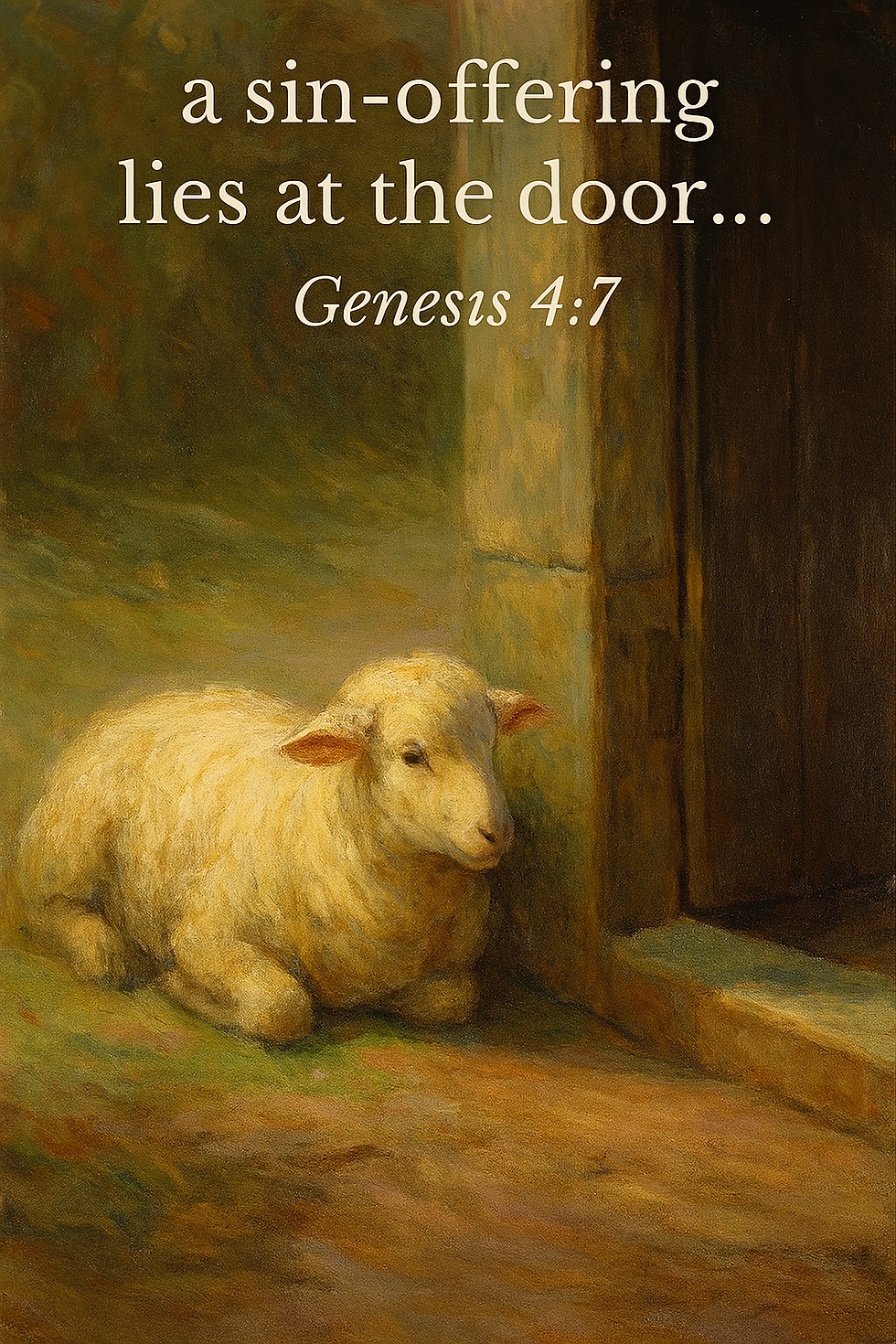We Will Never Be Immortal
- Leisa Baysinger

- Dec 2, 2020
- 6 min read
Updated: Jul 9, 2022
John 17:2 "As thou hast given him power over all flesh, that he should give eternal life to as many as thou hast given him"
John 6:40 "And this is the will of him that sent me, that every one which seeth the Son, and believeth on him, may have everlasting life: and I will raise him up at the last day"
Matthew 28:20- " Teaching them to observe all things whatsoever I have commanded you: and, lo, I am with you alway, even unto the end of the world. Amen. (world is aion) (aion and aionios)
I John 2:17 – "And the world passeth away, and the lust thereof: but he that doeth the will of God abideth for ever."
Revelation 10:6 – " And sware by him that liveth for ever and ever, who created heaven, and the things that therein are, and the earth, and the things that therein are, and the sea, and the things which are therein, that there should be time no longer:"
The words everlasting, eternal, world, forever, and forever and ever, all come from the same Greek word.
Before we can understand what it means for us to have, or rather be given, everlasting or eternal life, we must first research exactly what the word "aion" or "aionios" means in the Greek.
Aion (G165-Strong’s concordance) “ an age, world, specifically (Jewish) a Messianic period present or future, eternal. Associated with two other greek words meaning: “a space of time, a particular period” and “a duration”.
In Hebrew the same word is Olam (H5769). But for Olam we are given more details to the understanding of the word and what the New Testament Jewish writers were trying to convey. We are told it means: world or age, meaning “concealed, vanishing point, out of mind” translated as forever, eternal, perpetual, eternity. It comes from a root word “alam” (H5956) to veil from sight, conceal, hide, representing a time past, present or future. “Olam” and “aion” means “hide away” or “hidden away”. A time period “hidden away”, or a “world (age) hidden away”, out of sight – past, present, or future. Time that has gone beyond the horizon of our vision. EXAMPLE – when you stand in front of an ocean-if it has an end- you cannot see it-it is Olam-hidden. When looking off in the far distance it is difficult to make out any details and what is beyond that horizon cannot be seen. This concept is the olam or aion.
This word is frequently translated as eternity or forever but in the English language it is misunderstood to mean a continual span of time that never ends. A common phrase in the Hebrew and Greek is usually translated “forever and ever”, in Hebrew this is "l'olam va'ed" and it means "to the distant horizon and again" In Greek it is “ice aion aion” (into age to age) – “a very distant time and even further”. Both phrases are used to indicate the idea of a very ancient or very future time beyond which the human mind can perceive or know. An example, (Jude 1:7) a smoke that ascends up forever or forever and ever. This would be like saying the smoke burns for eternity or for eternity to eternity. That doesn’t make sense, as the fire and smoke from Sodom and Gomorrha burned out thousands of years ago. Instead it means that it burns for a time.
Olam or aion is a word used to describe time; time that is difficult to know or perceive.
Sometimes the words mean for a long duration, such as in a man’s long life, or a dispensation or age of time. For example, ancient Rabbi's taught that our human existence in the universe is divided into two time periods: Olam Hazeh – this present age, this world, the time between Adam’s fall and the coming of Messiah, always believed to be a period of 6000 years and, the Olam Haba or Haolam Haba – The world to come, a place of reward for the righteous. This term is also used to refer to the Messianic age.
The Olam Ha’emet – the world to come, in which truth will prevail, is a synonym for the Olam Haba. This is also referred to as the place of “life after death” or “afterlife” when the righteous dead are
resurrected by the Messiah to live forever, and also “end of days” when the world will be judged and the righteous resurrected and rewarded, and the wicked punished.
There is a difference between the words “eternal” and “immortal”. We have discussed the word eternal meaning olam or aion, a measurement of time which is unknown to man. The word immortality is completely different from either of those.
The word immortal literally means that the thing immortal has – life within itself. Life springs forth from its own self. A thing immortal has no beginning or no ending. Hence, I am the Alpha and Omega (literally the Aleph and the Tav), the First and the Last. He has no beginning or end. GOD ALONE possesses this trait or characteristic. LIFE does NOT and NEVER can spring forth from man or animal. WITHOUT HIM WE Have NO LIFE or any WAY to sustain life from within ourselves. To be immortal means that it cannot have been created because then it would not have life within itself.
John 5:26 - "For as the Father hath life in himself; so hath he given to the Son to have life in himself"
I Timothy 6:16 - "Who only hath immortality, dwelling in the light which no man can approach unto; whom no man hath seen, nor can see: to whom be honour and power everlasting. Amen".
Human Beings have the ability to be “eternal” but not “immortal”. Man will never be immortal. Only God is immortal.
Romans 2:7 " To them who by patient continuance in well doing seek for glory and honour and immortality, eternal life"
I Cor. 15:53-54 - "For this corruptible must put on incorruption, and this mortal must put on immortality. So when this corruptible shall have put on incorruption, and this mortal shall have put on immortality, then shall be brought to pass the saying that is written, Death is swallowed up in victory".
II Tim. 1:10 - "But is now made manifest by the appearing of our Saviour Jesus Christ, who hath abolished death, and hath brought life and immortality to light through the gospel"
The word immortality used in these scriptures means in the Greek (Strong's) “incorruption"-which means undecaying “deathlessness” “unending existence”. The translation should say deathlessness or incorruption, not immortality. Some will have everlasting life, but not immortality, for immortality is life within itself. Since we only have life, given to us by Him, then our eternal, everlasting life thus “describes an existence which, while having the potential of ending, will never cease under favorable conditions. Those favorable conditions being given to us by the one who is the life sustainer, the immortal one, from whom all life flows. The word “immortal” is the condition in which death is impossible -- a death-proof condition. In contrast, the word “mortal” is a condition in which death is possible. The first man, Adam, was created mortal. He was in a condition in which death was a possibility or everlasting life was a possibility. Had he remained obedient, he would have continued to live forever, but he would always have remained mortal -- liable to death if disobedient. Adam did not remain obedient, however. After his sin of disobedience, Adam was sentenced to death. Obviously, God could not sentence man to death if he were immortal and there was no possibility for him to die. Such a sentence by God would have been an empty threat. We must conclude, then, that Adam was mortal. God can destroy both body and soul. Matthew 10:28 God did not create something He could not destroy.”
(above from http://www.bibletruthkeys.com/immortality_versus_mortality.htm)
Consider angels, they are not immortal, they are eternal beings. They were created and their life is sustained by God for a time (aion/olam- unknown or hidden). They have no life within themselves, they were created. Eternal life can be terminated, evil spirits can be destroyed. In Matthew 25:41 – If the lake of fire was prepared for the devil and his angels then how could it hurt them if they were immortal beings? Read Matt. 8:29, Mk. 5:7, Luke 8:28- “before our time”- time here means, "season, proper time, set occasion"(kairos in Greek). In Rev. 20:1-3, Is. 24:21-22, Rev. 20: 7-10 we know that Satan will be destroyed in a lake of fire that will burn for “a distant time and even further”. (An undetermined time)
So, from our first two verses we find that Yeshua will give us eternal life (life for an undetermined time period-one that man cannot know and understand) and he will give it to those who are obedient on the last day when we experience resurrection. However, we are, nor never will be immortal, because God could still destroy anything he created, if He chooses.
The very fact that man was created from dust shows that he was mortal. He has always had the ability to die. The tree of life, from which he ate, gave him eternal life, as long as he was able to eat from it. When Adam and Eve were cast from the garden the way to the tree of life was guarded and they no longer had access. Hence, they had to face death. In the coming Kingdom of the Messiah we will once again have access to the tree of life. Hence, deathlessness!
Blessings,
Leisa
##wordsofyeshua
All scripture is from the KJV unless otherwise indicated.


_PNG.png)





Comments